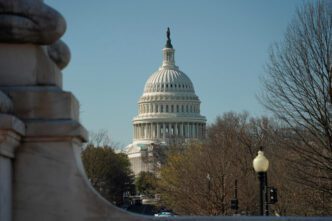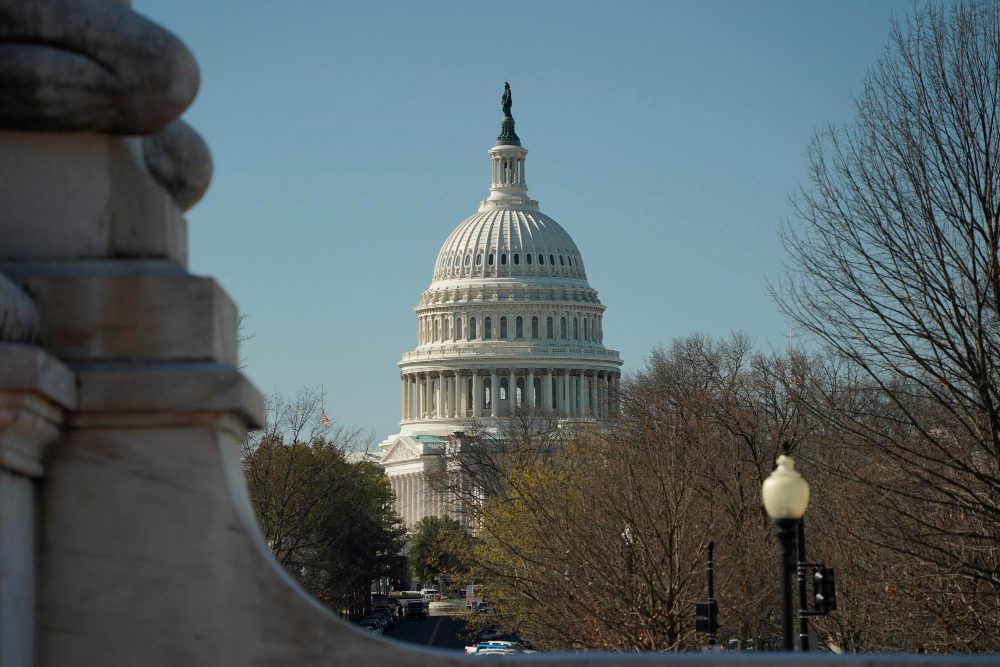Executive Summary
The Story So Far
Why This Matters
Who Thinks What?
Fears of a government shutdown are intensifying as Senate Democrats, led by Minority Leader Chuck Schumer, appear resolute in blocking a Republican-led spending bill, setting the stage for a potential funding lapse by the September 30 deadline. Unlike a previous funding fight in March, Democrats are presenting a unified front, demanding significant policy concessions from Republicans before supporting a measure to keep the government open.
Standoff in Congress
The current impasse centers on a proposed continuing resolution (CR) from House Speaker Mike Johnson, which would extend government funding until November 21. This bill, described by Republicans as “clean” and free of controversial policy riders, also includes an additional $30 million for lawmaker security measures. However, Schumer and other Democratic leaders argue that President Trump’s actions and GOP-led Congress’s policies necessitate a tougher stance.
Democrats are demanding the reversal of Medicaid cuts outlined in Trump’s domestic policy law, protection of Congress’s spending powers, and the extension of Affordable Care Act (ACA) subsidies, which are set to expire at the end of 2025. This position marks a shift from March, when Schumer ultimately voted to keep the government open despite blowback from his left flank.
GOP’s Clean CR
Republicans, including Senate Majority Leader John Thune, are pushing for the “clean” CR, arguing that Democrats are engaging in political theatrics. Thune expressed exasperation, stating, “It’s a clean CR. What’s plan B? You tell me.” He predicted a shutdown if Democrats filibuster the bill in the Senate.
House Appropriations Committee Chair Rep. Tom Cole (R-OK) echoed this sentiment, asserting there is “nothing in the legislation they object to, not a single thing.” He suggested the Democratic opposition is “more about politics” and “throwing a temper tantrum.” Rep. Jim Jordan (R-OH), a conservative who often opposes stopgap bills, urged House Republicans to support the measure for Trump’s agenda, calling it “common sense.”
Key Demands and Divisions
One of the most contentious Democratic demands is the extension of ACA subsidies for approximately 22 million Americans. This proposal has ignited fierce opposition among conservative hardliners. Rep. Lauren Boebert (R-CO) declared it a “big red line” that would not pass the House, while Rep. Warren Davidson (R-OH) called it an “expensive government handout” and a “Democrat priority.”
Democrats, however, maintain that the onus is on the GOP. Sen. Cory Booker, a member of Schumer’s leadership team, stated, “Donald Trump controls the White House. He controls the House and he controls the Senate. The responsibility is on him.”
The Path Ahead
Speaker Johnson plans to bring the stopgap bill to the House floor later this week. Given opposition from some conservative members, he may need a handful of Democratic votes to pass it. If it clears the House, the bill would then head to the Senate, where Democrats are signaling their intent to filibuster.
One notable exception to the Democratic unified front is Sen. John Fetterman (D-PA), who has publicly stated he will back the GOP funding bill. Fetterman warned against holding the economy “hostage” and creating a “huge, gigantic injection of chaos” by shutting down the government, suggesting it would be akin to “mutilating our nation.”
Messaging War and Unity
Despite Fetterman’s stance, Democrats believe they are poised to win the messaging war should a shutdown occur. House Minority Leader Hakeem Jeffries has reportedly told his caucus that Democrats are intentionally focusing publicly on health care, including ACA tax credits, to win public debate. Jeffries expressed confidence in Schumer’s resolve this time, noting that if House Democrats opposed a similar GOP funding plan in March, there’s no reason to support it now.
As the September 30 deadline looms, Congress faces a bitter stalemate with high stakes. Both parties appear entrenched in their positions, making a path to agreement increasingly uncertain and raising the prospect of the first total government funding lapse in six years, which could significantly impact federal workers and services.








